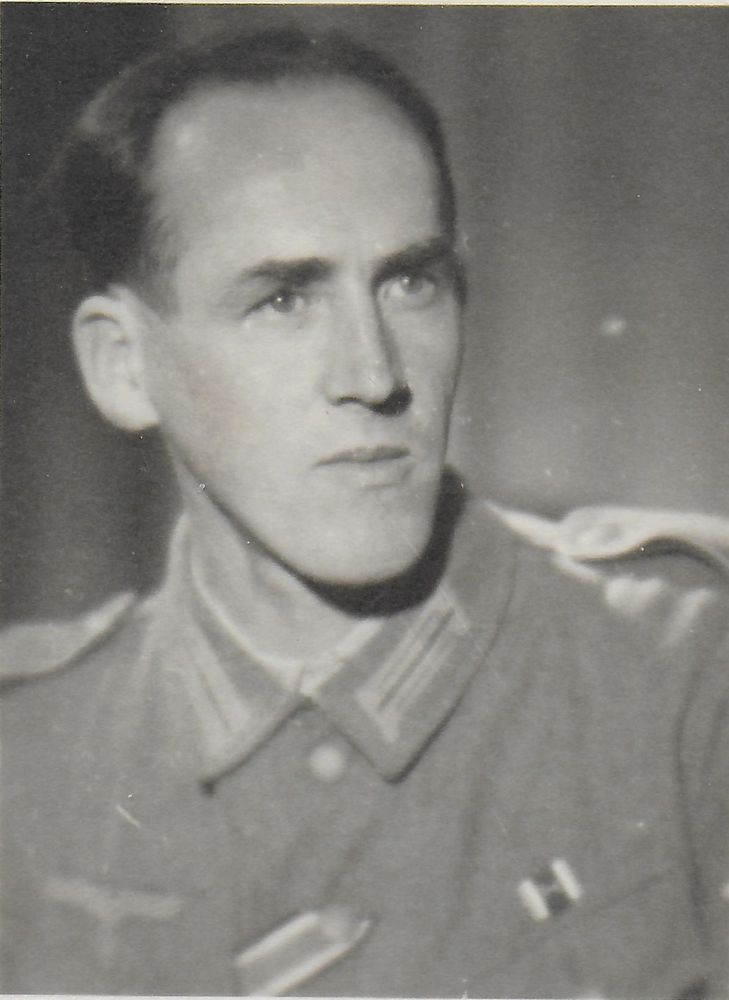Quellen
Landesamt für Finanzen Bayern, Landesentschädigungsamt, EG 1605/I/1174 und 1606/I/1175.
Staatsarchiv München, Generalstaatsanwaltschaft 3045 (OJs 99/33).
Admission free
Verfolgte Münchner KPD-Mitglieder

Heinrich Döppel, Ausweisfoto, um 1939 | Privatarchiv F. Mühldorfer
Heinrich Döppel, in Abensberg aufgewachsen, lebte seit 1928 in München-Neuhausen. Der gelernte Elektromonteur, seit 1932 arbeitslos, engagierte sich im Kommunistischen Jugendverband (KJVD) und trat auch der KPD bei. Nach den Massenverhaftungen der bekannten Münchner Kommunist*innen unmittelbar nach der Machtübernahme der Nationalsozialisten waren es vor allem Arbeitersportler und Mitglieder des KJVD, die seit Sommer 1933 versuchten, Kontakte aufzubauen und illegale Schriften zu drucken und zu verbreiten. Heinrich Döppel stellte eine Verbindung mit Augsburger Jugendlichen her, um auch sie mit Literatur zu versorgen. Im September 1933 wurde die Gruppe entdeckt; mehr als 20 Polizisten umstellten Döppels Wohnhaus in der Horemannstraße. Nach Untersuchungshaft und brutalen Verhören im Gefängnis wurde er vom Oberlandesgericht München in einem Hochverrats-Prozess gegen insgesamt sechs junge Angeklagte wegen Verbreitung illegaler Schriften zu einem Jahr und sechs Monaten Gefängnis verurteilt. Nach Verbüßung der Haft in Nürnberg und Straubing wurde er allerdings nicht entlassen, sondern im KZ Dachau bis 11.4.1938 eingesperrt. 1939, kurz bevor er zum Militärdienst eingezogen wurde, heiratete er seine Freundin aus der Jugendzeit, Maria Dengler, Schwester von Centa Beimler.
Maria Dengler wurde am 12.9.1933 an ihrem Arbeitsplatz als Verkäuferin beim Konsumverein Sendling verhaftet und ebenso wie ihre Schwester in „Sippenhaft“ genommen – ohne jede Anklage und ohne Begründung. Ihre „Schutzhaft“ verbüßte sie zunächst im Gefängnis Stadelheim, ab 10.2.1936 bis 15.6.1937 im Frauenkonzentrationslager Moringen. Nach ihrer Freilassung hatte sie als ehemalige politische Gefangene große Probleme bei der Arbeitsplatzsuche. Auch sie fand schließlich, wie ihre Schwester Centa, bei der Oberbayerischen Aktiengesellschaft für Kohlenbergbau wieder eine Beschäftigung.
Landesamt für Finanzen Bayern, Landesentschädigungsamt, EG 1605/I/1174 und 1606/I/1175.
Staatsarchiv München, Generalstaatsanwaltschaft 3045 (OJs 99/33).